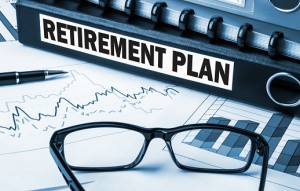Retirement Planning Investments a Dire Place for Making Mistakes

We all make mistakes, but there are times when a false step is far worse than at others.
An article on the website Bankrate.com by Sheyna Steiner, who covers investing, retirement, CD rates and other personal finance topics for the site and is a co-author, along with seven other Bankrate reporters and editors, of “Future Millionaires’ Guidebook,” points out that retirement investing errors can have the most dire of consequences.
“Few investors, if any, sail through life without making mistakes, but when it comes to retirement investing, serious missteps can cost you,” Steiner writes. “For instance, unadvertised fees are easy to discount, but investors do so at their peril. Paying an extra 1 percent in fees every year over the span of a career can leave your account lighter by tens of thousands of dollars at retirement, according to the Department of Labor.
“Similarly, ignoring unseen sources of risk can also prove detrimental. Since the market crash in 2008, many investors have been wary of taking aggressive risks with their portfolio for fear of losing money. But investing too conservatively can pose even more risk in the long run.”
Steiner goes on to lament that the majority of people are pretty much on their own when it comes to learning how best to fund future retirement, particularly in the area of avoiding costly missteps.
“It’s somewhat counterintuitive, but a person’s actual investments can be less important than the types of accounts used for investing for retirement,” according to the article. “The tax-favorable 401(k) plans and individual retirement accounts, or IRAs, are a huge leg up in getting to retirement because they enable your tax-deferred earnings to compound. In addition, with traditional plans you generally get an immediate tax break on your taxable income each year you contribute.
“At any point in time, less than one-half of the full-time, private-sector workforce has access to a workplace retirement plan, says Anthony Webb, a senior research economist at the Center for Retirement Research at Boston College. Of those who do have access to a workplace plan, about 20 percent choose not to enroll, he adds. It’s especially foolhardy to pass up the opportunity to invest in a plan when your employer matches a portion of your contributions. That’s because you’re passing up free money, the equivalent of refusing a salary increase when it’s offered.”
